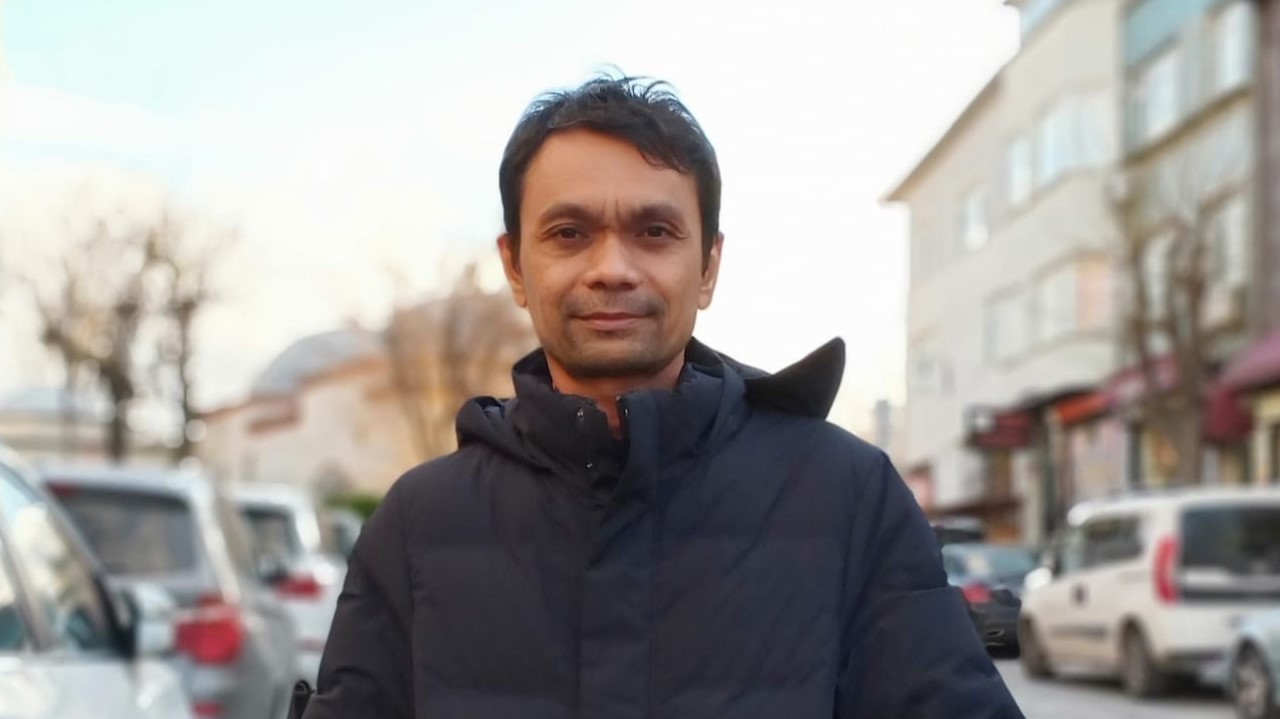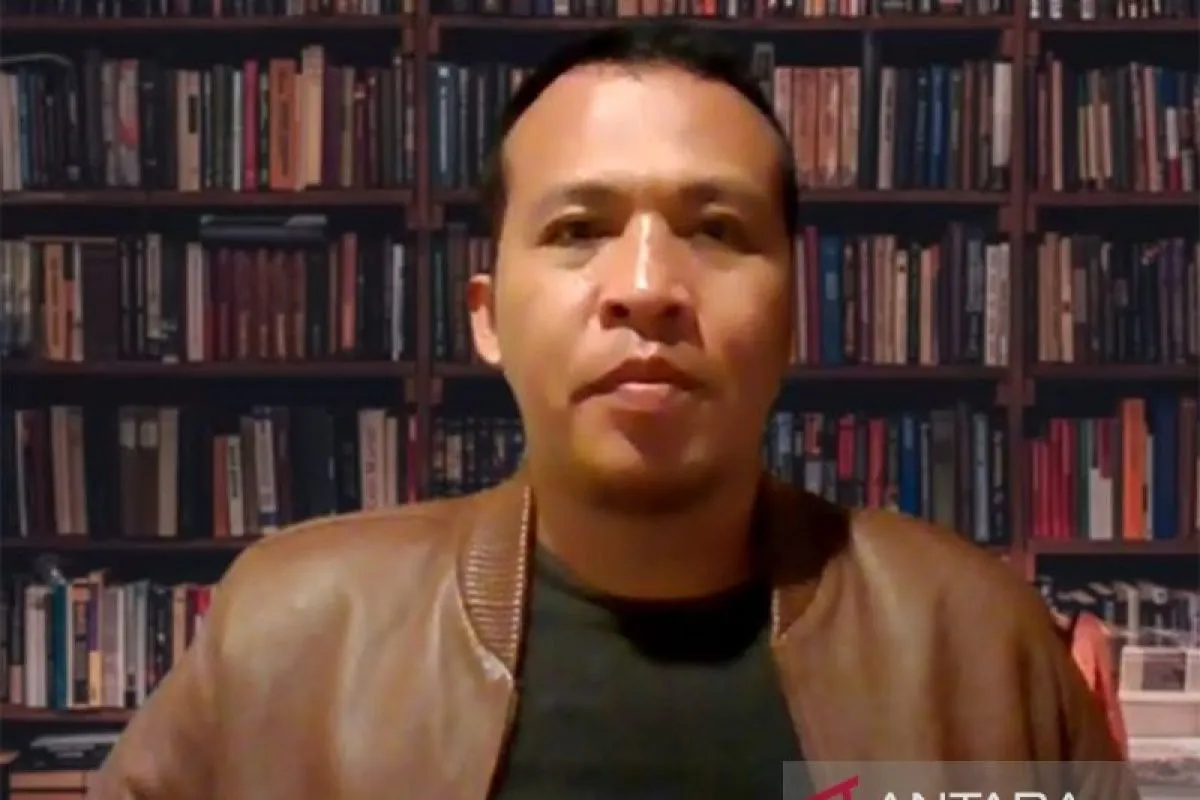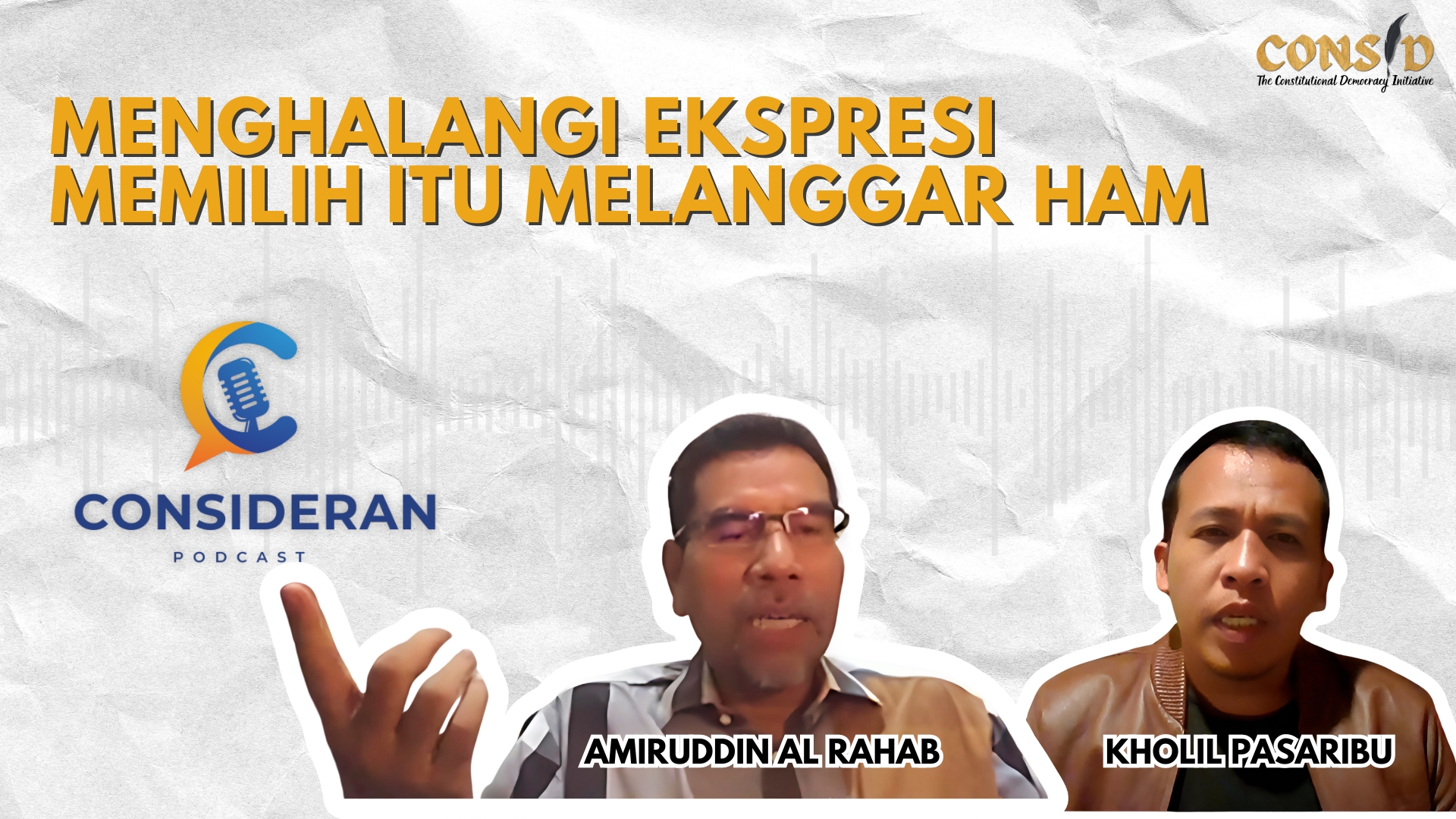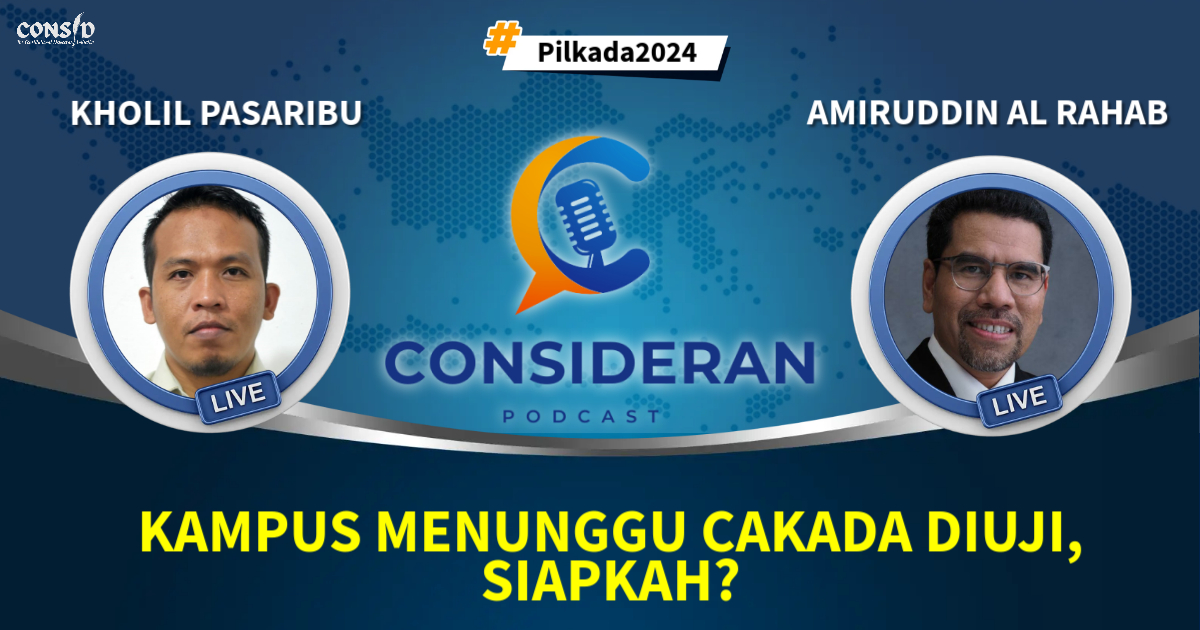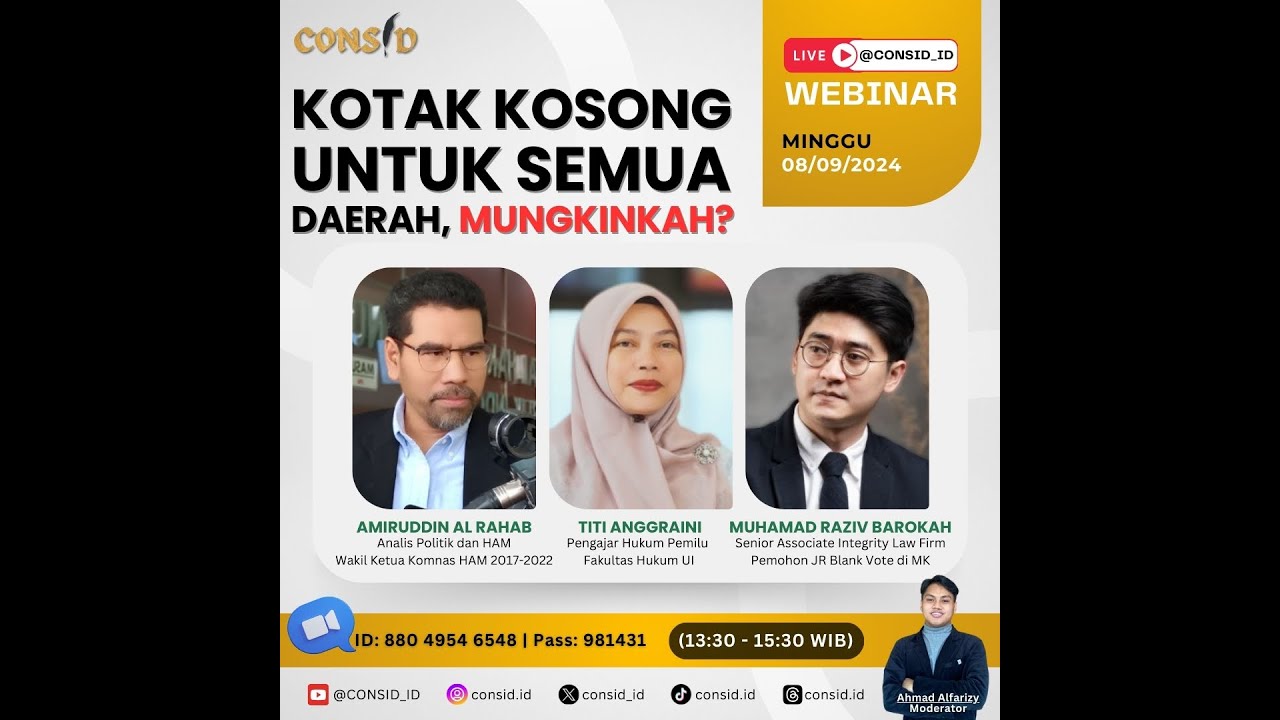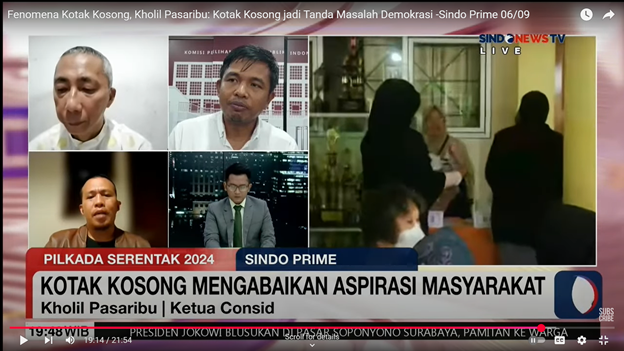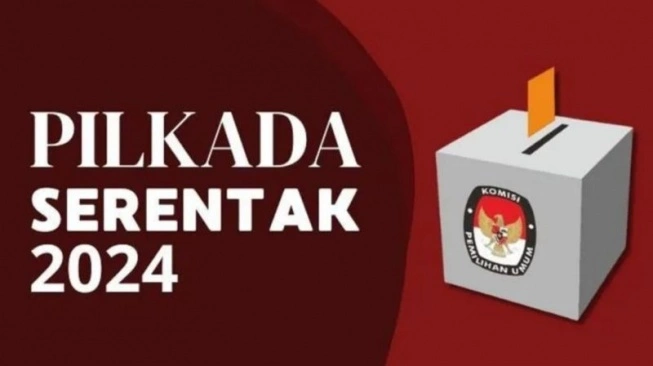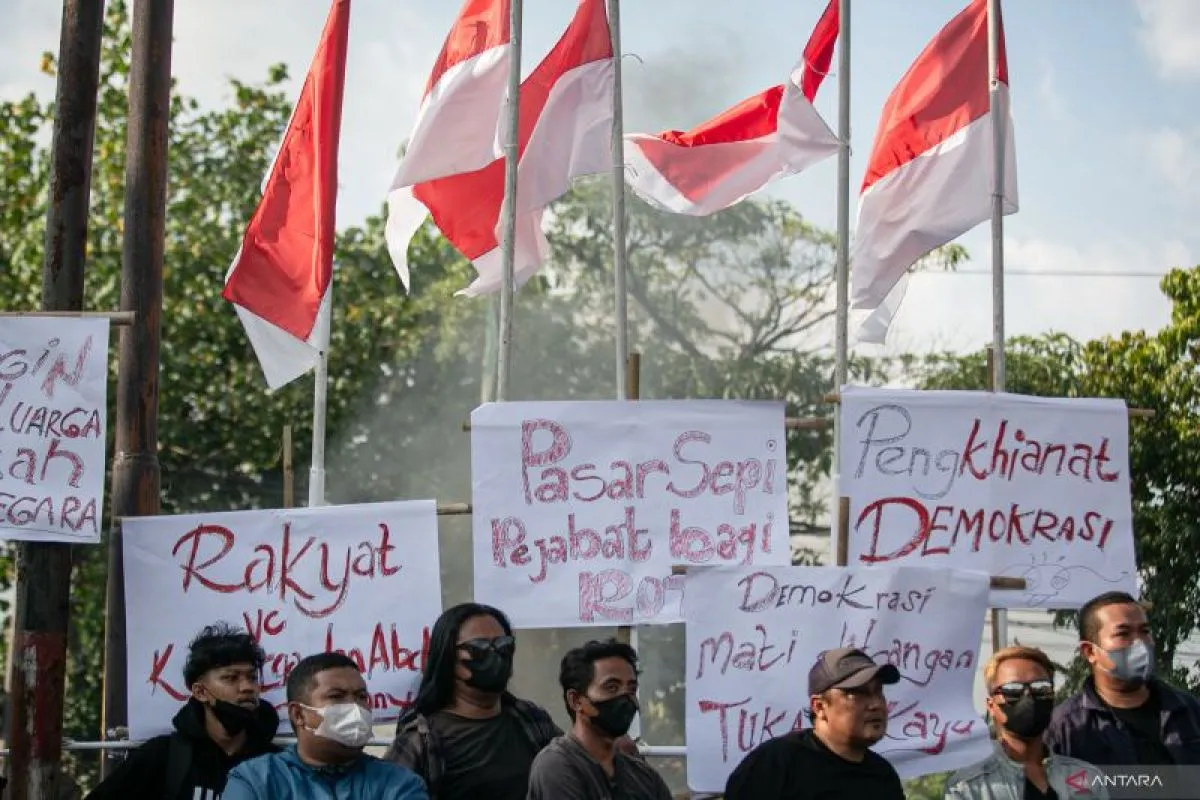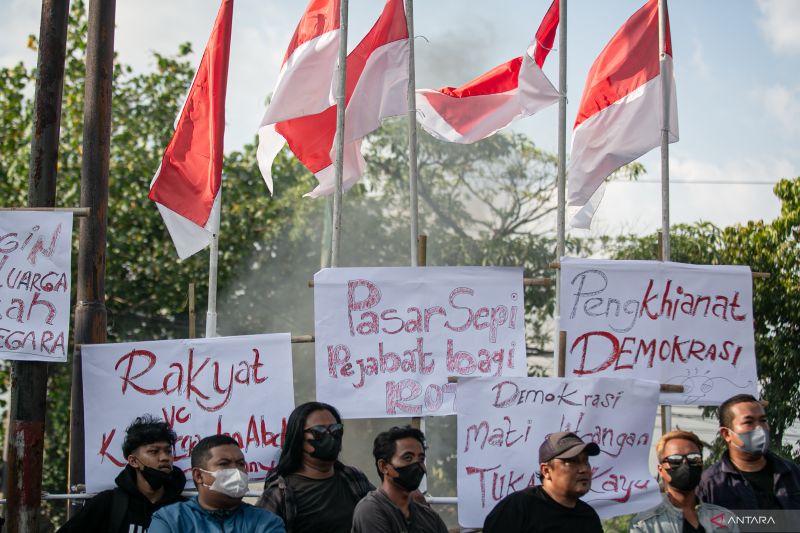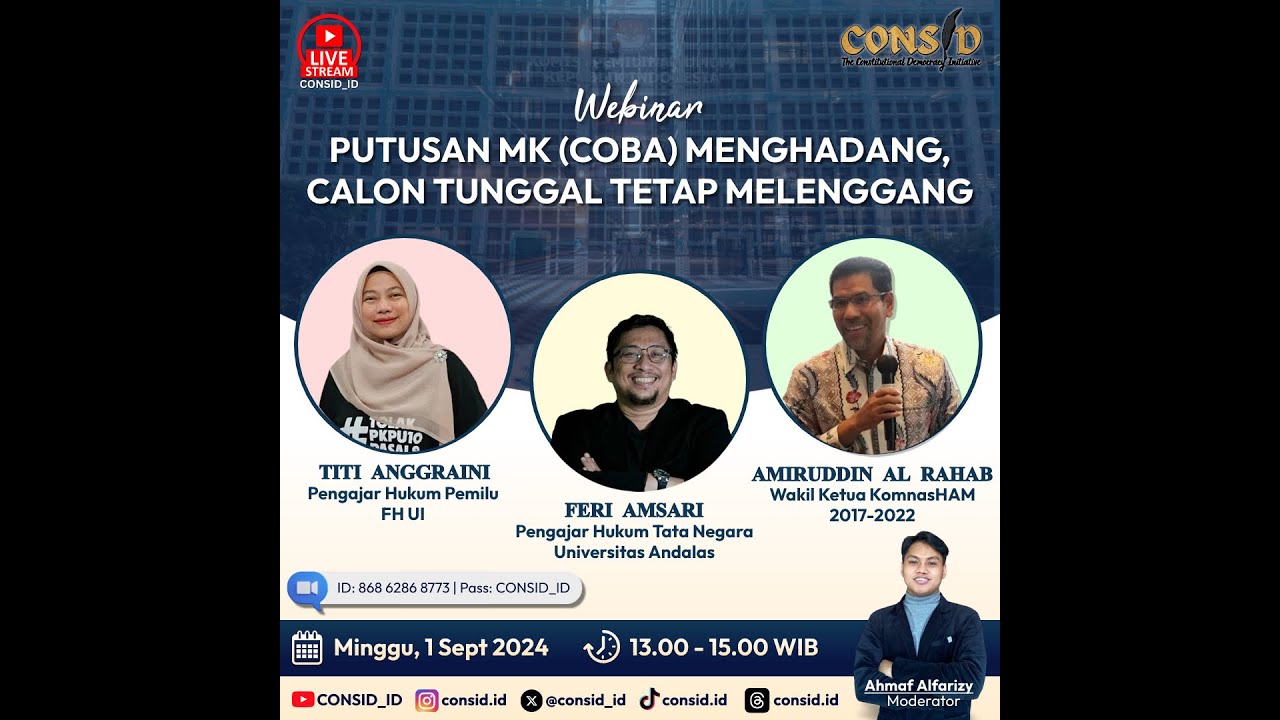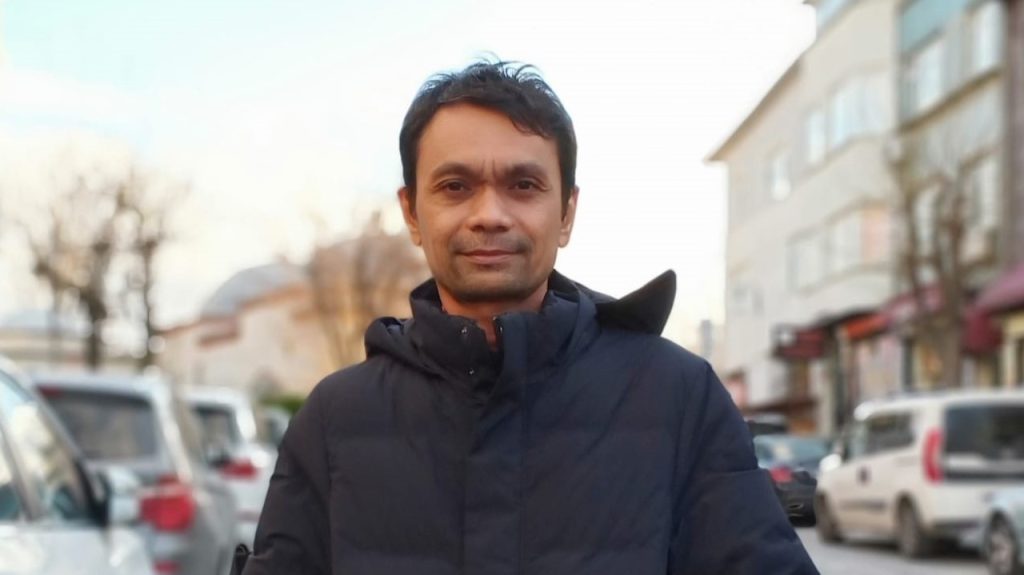
Mashudi SR
Senior Researcher, CONSID
"A true leader is born from hard work, in an elegant and moral way. Not created, or asking to be created, through unethical means, by abusing the power of close ties and breaking the rules."“
One more door to political opportunity has opened for young people, after the Supreme Court (MA) declared that the minimum age for candidates running in local elections is 30 years for governors and 25 years for regents or mayors, at the time of inauguration. This means that when registering and being officially declared as a candidate pair by the Election Commission (KPU), they do not have to be 30 or 25 years old as previously required by the General Election Commission Regulation (PKPU).
The Supreme Court's interpretation, as stated in Decision No. 23 P/HUM/2024, has drastically changed what was previously understood about the age requirement for candidates. Normally, someone who intends to run in a local election and submits registration documents within the set timeframe is considered a prospective candidate (bakal calon). This status changes once the KPU verifies and confirms all nomination requirements have been met. At that point, the person is legally declared a candidate (calon kepala daerah) and officially becomes a participant in the election, with all attached rights and responsibilities.
This new interpretation is based on the meaning of the word “candidate” in Article 7 paragraph (2) letter e of Law No. 10/2016 on Regional Head Elections. It states:“Candidates for Governor and Deputy Governor, Regent and Deputy Regent, Mayor and Deputy Mayor as referred to in paragraph (1) must meet the requirements: e. be at least 30 years old for Governor and Deputy Governor, and 25 years old for Regent and Deputy Regent, and Mayor and Deputy Mayor.”.
The question is: when does someone officially become a candidate (cakada)? The answer can be found in Article 4 paragraph (1) letter d of PKPU No. 9 of 2020 on the Nomination of Governors, Regents, and Mayors, which says:“Indonesian citizens may become candidates for governor and deputy governor if they meet the following requirements: (d) be at least 30 years old as of the date the candidate is declared.”
This is the article that was annulled by the Supreme Court and replaced with a new interpretation: that a candidate must be “at least 30 years old for Governor and Deputy Governor, and 25 years old for Regent and Deputy Regent or Mayor and Deputy Mayor, counted from the date of inauguration.”.
The Trend of Young Politicians
Regardless of the controversy surrounding the Supreme Court’s decision, it has opened more doors for young political figures to participate inelected position.In legislative bodies, any citizen aged 21 and above can run as a legislative candidate. As a result, many young people have started to become lawmakers. Now, for young people who aim to take executive leadership at the regional level, the requirements have been made “easier”.
We cannot deny that there is currently a wave of young people enteringelected position. For example, Finland’s Prime Minister, Sanna Marin, was elected at 34 years old and was known as the world’s youngest PM at the time. Daniel Noboa became Ecuador’s President at 35. Gabriel Boric (35) of Chile, Nayib Bukele (37) of El Salvador, and Emmanuel Macron, who became France’s President at 39 and had previously served as an economy minister.
Other examples include Jacinda Ardern, who served as New Zealand’s Prime Minister from 2017 to 2023 starting at age 37. Vjosa Osmani became President of Kosovo at 38. Irakli Garibashvili became Georgia’s PM at 31. Oleksiy Honcharuk became Ukraine’s PM in 2019 at the age of 35.
Among ministers, we have Syed Saddiq (25), Malaysia’s Minister for Youth and Sports; Shamma Al Mazrui (22), Minister of Youth Affairs in the UAE; and Aida Hadzialic, Sweden’s Minister of Secondary Education at 27. Sebastian Kurz became Austria’s Foreign Minister at 27 and Prime Minister at 31. From Indonesia, Dito Ariotedjo became Minister of Youth and Sports at 32, younger than Nadiem Makarim, who was appointed Minister of Education, Research and Technology at 39.
The Local Election Momentum
For young politicians in Indonesia, the names above can be inspiring examples to achieve their political dreams, whether in the executive or legislative branch. Of course, reaching those positions requires smart political work, convincing public support, and the right methods—not shortcuts, rule-breaking, or unethical political practices.
At this moment, the ongoing local elections are waiting for the presence of young Indonesian politicians. This is a political opportunity to test their abilities, talents, and political capital. The current rules already provide a relatively easy pathway. Even without the Supreme Court’s decision, the existing minimum age requirement has always been friendly to young politicians. The threshold of 30 for governors and 25 for regents or mayors already includes the millennial generation.
Therefore, the challenge to be addressed is to show the capacity to lead at the regional level. Demonstrate personal leadership skills, problem-solving abilities, and the capacity to build communication and relationships with various stakeholders to create harmony and stability, and other important competencies. stakeholder untuk menciptakan harmoni dan kestabilan dan aspek pendukung lainnya.
All of this is needed to convince the public that young people are indeed capable of leadership. The world’s young leaders mentioned earlier were not simply handed power. They earned the trust of citizens and senior political elites because they had strong and convincing track records.
A true leader is born from hard work, in an elegant and moral way. Not created, or asking to be created, through unethical means, by using someone else’s power or breaking the rules. Young politicians aiming for leadership should follow democratic paths. Because what matters is not just gaining a position, but serving the people in a way that becomes a role model for the next generation. Seek power without becoming a burden to civilisation. Wallahu A’lam Bishawab.
Note: This article was previously published in Serambi Indonesia newspaper.


